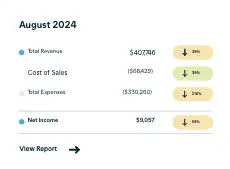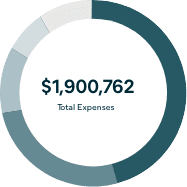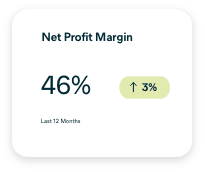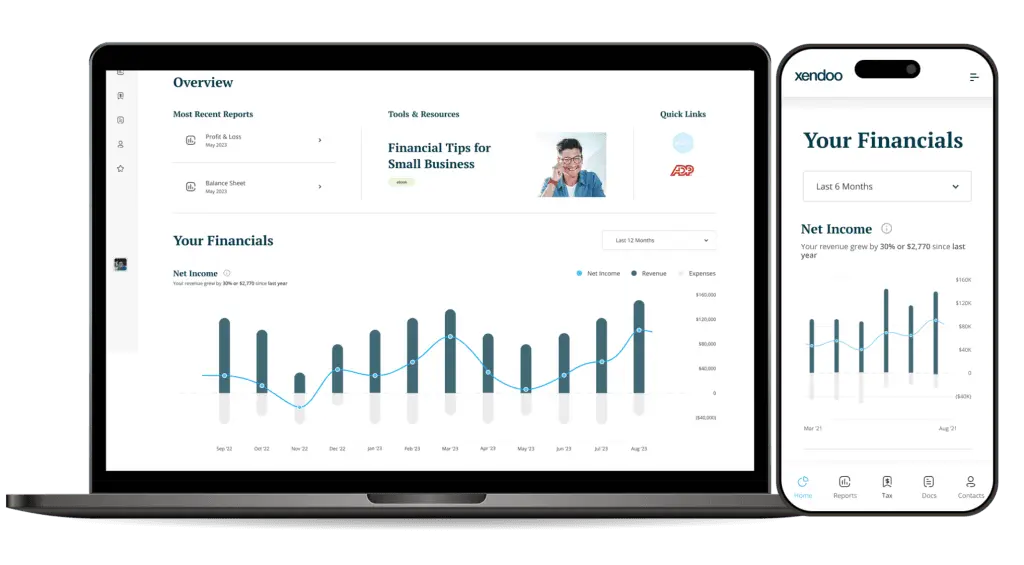
Client Accounting Services vs Traditional Accounting
Accounting is a core part of running a business. It affects how performance is measured, how decisions are made, and
FREE Review of Your Books! Schedule Now >
Our bookkeeping experts bridge the gaps between all moving parts of your business’s financials, offering data-driven insights and financial clarity to help you make informed business decisions.

















You deserve a team of real people who are dedicated to your business. We reconcile your expenses weekly and provide monthly financial reports, giving you clear visibility into your business’s financial health.



View your financial data 24/7 through Xendoo’s mobile app or desktop dashboard, wherever you are.
Communicate easily, ask questions, and get answers fast inside the platform.
See your expenses broken down by category, with clear totals so you can compare costs.
Track changes in revenue and net income so you can make confident, informed decisions.


Our team is excited to learn about your business and start managing your books with precision and efficiency.

Your bookkeeper is working in your books weekly to ensure your financials are always up- to-date.

We’re here to support you. Meet with your bookkeeper regularly to review your books, monthly P&L, balance sheet, and have timely visibility to make informed decisions.
I can't say enough good things about and the Xendoo team! My books have never been this accurate, and having the ability to schedule calls directly on calendar at any time has made managing my finances so much easier. The team is incredibly professional, knowledgeable, and responsive."
"They did an amazing job with my books"










Regain your time – focus on growth while we take care of the numbers.


Accounting is a core part of running a business. It affects how performance is measured, how decisions are made, and

SaaS businesses operate in one of the most capital-driven growth environments in modern business. Whether pursuing venture capital, private equity

For many SaaS businesses, bookkeeping starts as an internal task. A founder handles it. An ops lead owns it part-time.

The 2026 tax season is here, and that means it’s time for businesses and self-employed individuals to make sure they

As eCommerce businesses scale, growth often outpaces visibility. Sales increase, channels expand, and payouts accelerate, yet many business owners still

Bookkeeping usually falls behind in small, quiet ways. A month is skipped. Reconciliations stop. Transactions pile up in uncategorized accounts.

Across invoicing and payment platforms, business owners are increasingly seeing a simple prompt: “Get paid now.” It appears helpful. Immediate

Summary: As businesses become more profitable, choosing the right tax structure becomes an important planning decision. This blog explains when